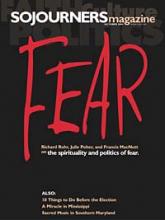As you watch Republican and Democratic attempts to reach out to Catholic voters, you can imagine that some clever political strategist has secretly divided us into "Red Catholics" and "Blue Catholics," the current nomenclature for our polarized citizenry.
If political strategists have yet to coin some new buzzword, it’s not for a lack of interest in the Catholic voter. During a presidential election year when campaign teams have targeted religious groups as if something beyond four years of earthly rewards were at stake, Catholic votes have become among the hottest electoral commodities. Republicans and Democrats both realize what one recent poll has only reinforced: Catholics serve as an "indicator of presidential preferences for the entire nation." The candidate who persuaded the most Catholics to choose him won every presidential election from Nixon in 1972 to Clinton in 1996.
The idea that such a stark division in Catholic America exists as it does in the rest of the country might have some merit. According to a recent poll, 40 percent of Catholics will vote for Bush, 40 percent for Kerry, and the rest remain undecided.
I’ve been working the past few months with about a dozen Catholic colleges across the country to encourage a more informed debate on the relationship between Catholic ethics and political issues during this presidential election year. In my travels, I have certainly come across "Red Catholics," or people of faith who are likely to regard criminalizing abortion as their top political priority and are probable Bush supporters. At the same time, I have encountered "Blue Catholics," or people of faith who usually prioritize a more just economy, improved health care, and a foreign policy committed to peace and just trade.
Read the Full Article
